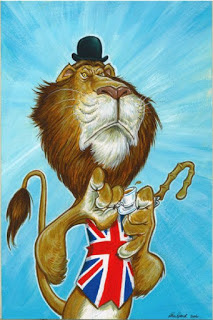Russia and economic warfare: RIP the free market new world order
Source: The Guardian
It is a quarter of a century since the Berlin Wall came down. The cold war was eventually won by superior western economic power and a new era began once the communist regime collapsed in the Soviet Union and the two halves of Germany were reunited.
For the first time in 25 years, the west is seriously worried about Russia. Ukraine's president, Petro Poroshenko, said at the weekend his country was "close to a point of no return – full-scale war".
Russia faces the threat of tougher economic sanctions from the US and the European Union unless it withdraws its troops from eastern Ukraine.
Economic warfare has the potential to damage Russia just as it did in the 1980s. Indeed, sanctions are hurting the economy, making it more expensive to refinance loans and almost impossible to attract the foreign capital needed to modernise Russia's energy sector. Growth has slowed to a standstill and the country will soon be in what could be a deep and prolonged recession.
If this of concern to Vladimir Putin, he has yet to show it. With the eurozone itself teetering on the brink of a fresh downturn, the Russian leader believes that in a war of sanctions between a west that is barely out of recession and a Russia accustomed to belt-tightening, it will be the west that blinks first. Whether he is right or not, one thing is clear: the era that began with the opening of the iron curtain is over.
Consider what happened when the Soviet Union collapsed. Instead of two great powers, there was now just one: the US. Instead of two competing ideologies, there was just: capitalism. "We know what works", said the then US president, George Bush, "the free market works".
The next decade was the heyday for Bush's vision. Capitalism spread to parts of the world where it had previously been partially or totally off limits: China, India, and Russia. The dollar entrenched its position as the global currency. The Federal Reserve in Washington became the world's central bank.
The completion of the seven-year Uruguay Round of trade talks saw tariffs reduced and markets opened up. A supra-national body, the World Trade Organisation, was set up in Geneva to act as the global trade policeman and to facilitate further liberalisation.
Russia was subjected to shock treatment that saw economy shrink by 40% by the end of the 1990s. Male life expectancy plummeted. Privatisation delivered what had been seen as state-owned assets into the hands of oligarchs who got enormously rich. The poverty rate soared.

